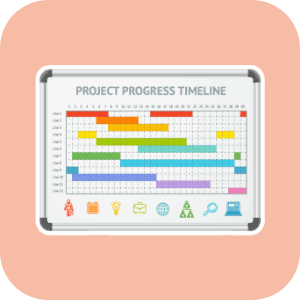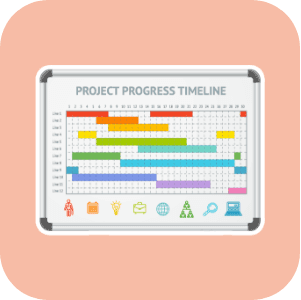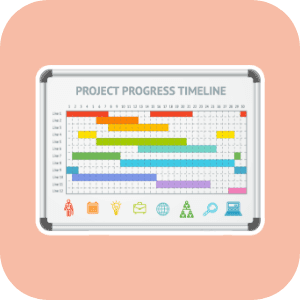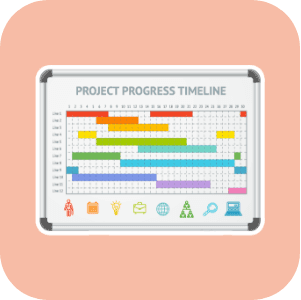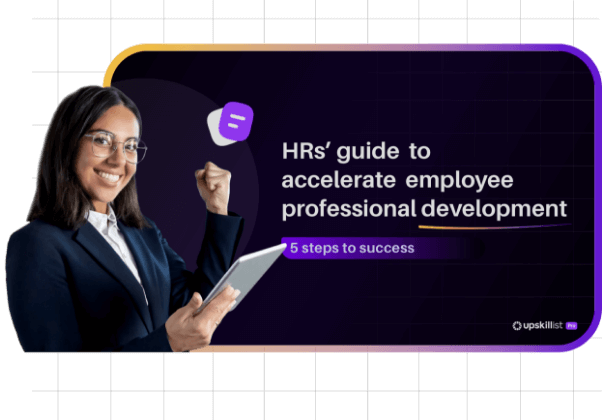Learn the basics of
Learn the basics of How to Start a Business
Upskill your team to gain insights and understanding into the essential elements that you need to start a business. Develop a team fully equipped with an understanding of, and practical skills in business planning to funding channels; managing brand identity and website development to the basics of marketing.
Key Learning Objectives:
- Apply the mindset of a successful entrepreneur
- Plan each element of starting and running a business
- Execute a streamlined and agile business model
- Grow and expand your small business, its market and offering
- Scale each element of a small business and maintain a sustainable competitive advantage

Ideal for:
Aspiring or current entrepreneurs as well as start-up and small business management teams.
Course outcome:
Develop teams fully equipped with an understanding of business essentials.
Course outline:
16
Weeks
04
Modules
32
Lessons
Course accreditation:
Upon completion of this leadership training course your employee will receive an accredited certificate assessed by global academic partner, the CPD Certification Service.
Globally recognised by:

Course details
MODULE 1
Diploma in How to Start a Business
MODULE 1
Diploma in How to Start a Business
1.The Entrepreneur Essentials
The journey of entrepreneurship is both exciting and daunting at the same time. It requires you to dream big, step out of your comfort zone and push your own limitations. However, when executed successfully, it enables you to become the architect of your own life and career. It’s filled to the brim with thrilling opportunities to both learn and grow - all towards becoming your best self and living the life you desire. The key, however, is knowing where to start - especially as an aspiring entrepreneur. This lesson will focus on the essential knowledge required to kick-start your entrepreneurial journey.
2.The Power of Visioning
As an aspiring entrepreneur or an individual aiming to follow a career within the entrepreneurial arena, it’s crucial that you understand the power of visioning and research. These practical concepts serve as vital 1st steps when starting any business. It plays an important role in both establishing and maintaining a strong foundation for your business - not only for the launch thereof but its growth prospects into the future. Apart from creating a solid foundation for your business, it also serves as the roadmap to business success and creates a sense of direction around which all strategies and subsequent decisions and actions are shaped. Within This lesson, we'll explore fun and creative methods for defining, designing and ensuring the desired future state of your business.
3.Creating Your Business Plan
Your business plan will give you the ability to plan how you turn your vision into a business. It will enable you to answer the tough day-to-day questions, as well as help you understand your cash flow forecast, market research and milestones to make the startup a reality.
4.Your Corporate Identity
Having professional looking design elements are crucial for your business. Not only will your customers take you seriously, but you will also have a sense of pride in what you do. In this extremely competitive age, you need your business to stand out above the rest. A professional-looking brand identity is one of the ways to stand out. This lesson is all about teaching you amazing tips and tools that could help you create a good brand identity/design and gain a competitive edge. All tools being illustrated in this lesson are free online-based software, so you can access this from almost anywhere. You will be taught how to create a company logo, an HTML based email signature, as well as other corporate identity elements.
5.Overall Marketing Plan
No business would succeed without some form of marketing - nobody will know about you or what your business can offer if you don't tell them. Once you've defined your objectives and you've identified your target market, it's time to create your marketing plan. Learn about the marketing funnel, and different marketing platforms and considerations - including content, SEO and paid advertising.
6.Social Media Marketing Strategy
The average adult spends approximately 5.9 hours a day on digital media. This means that your Social Media Marketing Strategy is a crucial element to success. Learn how to develop this strategy for your startup & focus your efforts where it matters most - on growing your business.
7.Setting Up Social Media
This practical lesson teaches you how to create and optimise social media business profiles on the top channels, including Facebook, YouTube, Instagram and Twitter.
8.Website Design Principles
In this lesson, you will be introduced to the world of website design. You will learn about key components and tips that can make your site unforgettable - for all the right reasons! Just a few of the concepts we will be discussing include usability, responsive design and emerging design trends. We'll be sharing some top tips and guidelines on key elements of your site such as images, text and calls to action. The topic of outsourcing your website design vs doing it yourself will also be explored as a key element in this lesson.
9.Website Builders & E-Commerce
Now that we have covered the basics of website design, it's time to talk about what an e-commerce site is and the different elements that you need to consider when creating one. During this lesson, we'll be demonstrating how to use Wix and WordPress - two very popular website builders. Your introduction to website design will conclude with a section on the most frequently asked questions around this subject.
10.Optimising Your Website & Marketing Performance
The only way a business can gather data about their digital marketing efforts and website visitors is through tracking. Understand what tracking is and how it is done with an introduction to Google Analytics - a critical tool for business growth. Learn about proven ways to improve website performance with simple changes, as well as increasing your marketing spend and performance simultaneously.
MODULE 2
Intermediate in How to Start a Business
MODULE 2
Intermediate in How to Start a Business
1.The Principles of Entrepreneurship
Launching your business is the most daunting part of becoming and being an entrepreneur - dreaming and planning is the easy part. But, ideas are nothing but ideas without execution. You have to push yourself out of your comfort zone and avoid common pitfalls if you want to realise your dream and achieve your vision. This lesson will focus on the principles of entrepreneurship, which includes its common pitfalls and how to avoid them, as well as the habits and characteristics that safeguard entrepreneurs and provide support throughout the entrepreneurial journey.
2.Entrepreneurs & Global Trends
The world we live in is constantly changing, the people in it are evolving and the business landscape is transforming - fuelled by the rapid changes and trends in technological advances and economic health, as well as political challenges and societal shifts. This lesson will explore key emerging trends influencing the entrepreneurial and small business landscape, as well as ways in which entrepreneurs can safeguard and future-proof their businesses, and themselves, by taking advantage of what these trends have to offer.
3.Practising & Piloting
As an aspiring entrepreneur starting a business, it’s important that the value of continuous and comprehensive market analyses not be underestimated. A market analysis can, and should, be conducted at various stages of a small business’ lifecycle, from pre-launch and beyond. This lesson will provide you with an introduction to market analysis, the key research considerations for new entrepreneurs, as well as the resources and data collection tools available to easily navigate through the research and analysis process.
4.Supply Chains & Value Chains
If you're an entrepreneur starting a small business, you'll most likely need a supply chain to bring your offering from concept to consumer. If you're an entrepreneur striving toward a competitive advantage, chances are you'll need a sound value chain to enable the realisation and delivery of optimal value for both your customers and business. We'll explore the primary differences between supply and value chains, as well as modern supply chains and the key decision-making and activity-based consideration areas under each.
5.Revenue & Business Models
Due to the fast-paced introduction of digital transformation, the rapid changes in innovative strategies, and the ever-changing demands of consumers, most businesses have been forced to think outside-the-box and mould their strategic endeavours into proactive, future-forward and consumer-centric decisions. This lesson will focus on the various revenue models and business models available, and explore the basic components of each to assist you in selecting the appropriate models - suited to your specific business and the demands of your customers.
6.Customers & Experiences
Now, more than ever, businesses are gaining momentum and solidifying a sustainable competitive advantage due to their modernised customer-centric approaches. With the rise of the digital age and the technological advances that came along with it, the ways consumers engage with businesses and their customer experience expectations have transformed drastically. This lesson will focus on customer experience and the various consideration areas under the customer journey, to ensure optimal customer satisfaction and retention.
7.Networks & Communities
The entrepreneurial journey is severely nerve-racking, filled with risks and could often become a lonely path. However, through well-executed professional networking, the entrepreneurial journey can become thrilling, filled with invaluable opportunities and supportive, as well as like-minded professionals. The aim of this lesson is to provide you with an introduction to professional networking, as well as the key consideration areas for entrepreneurs entering the entrepreneurial world and launching a new business.
8.Launching & Leveraging
The entrepreneurial journey presents unique challenges. Some of these challenges are sometimes faced even before the business is up and running. One of the challenges startup entrepreneurs face is recognising that Moment of Truth - the one that requires you to hang the proverbial open sign and start welcoming customers. This lesson will aim to assist you in finding your Moment of Truth and introduce various ways in which you can optimally launch your business, create awareness for your offering and start generating customers - even with limited resources.
MODULE 3
Advanced in How to Start a Business
MODULE 3
Advanced in How to Start a Business
1.The Principles of Growth
The journey of entrepreneurship is both exciting and challenging - posing a thrilling uphill climb for entrepreneurs who desire to start, launch, grow and scale the business of their dreams. To reach the next desired level of success and propel your business into its optimal state, your business must develop and adapt continuously. This lesson will aim to enhance your knowledge about the basic principles of business growth, methods for strengthening your launch foundation and the various approaches followed by successful entrepreneurs to ensure sustainable business growth.
2.The Art of Leadership
Leadership excellence, especially among entrepreneurs starting a business, requires the ability to attract and retain capable individuals, motivate them to provide their best efforts and outputs, as well as face challenges proactively and effectively. These are certainly difficult tasks, which explains why effective leadership is both extremely rare and important. This lesson will explore the basic principles of leadership, the qualities and characteristics of successful leaders, various leadership styles and the importance of leadership within the entrepreneurial environment.
3.Marketing & Metrics
Marketing is a vital process for entrepreneurs launching and growing a new business - since no business could establish themselves within their desired market, as well as create and maintain awareness among their customers, without it. The process of acquiring and retaining customers, as well as the various insights that ensue, is at the very core of your marketing strategy. This lesson will aim to enhance your knowledge as to optimal ways in which to promote your business once launched and maintain the optimal level of awareness, to break through competitive noise.
4.Customers & Conversions
Customer demands are ever-changing, especially given the digitisation of various touchpoints throughout the customer journey and the increase in competitive content. Customers are demanding more personalised engagements and require businesses to adjust their customer-related activities to their experience preferences. This lesson will aim to equip you with the necessary knowledge to create an agile customer acquisition and retention strategy and enhance the customer experience - to increase both satisfaction and sales performance.
5.Pitches & Partnerships
Finding startup capital is one of the most challenging exercises for startup entrepreneurs, especially those new to the entrepreneurial environment. Although it's possible to start and launch a business with limited capital and resources, there's no denying that you'll require additional funding/capital in the long-run - which will aid the growth and scaling of your business into the future. This lesson will aim to enhance your knowledge about the funding opportunities available and how to create/present the ultimate pitch/proposals to prospective investors.
6.Policies & Principles
Even though a new business, launched in the modern age, should maintain an agile strategic approach and the capacity/capability to adapt to impactful change drivers and trends, there are various fundamental elements that should be solidified to strengthen the foundation of your business. This foundation relates to the business practices and policies on which your business is built. This lesson will aim to enhance your knowledge about the essence of sound business practice, as well as how to create and embed strong policies within the DNA of your business.
7.Brands & Beyond
Effective brand management enables your customers to accelerate through the customer journey and transform into loyal or advocate customers for your business. Through positive brand associations and strong awareness of your business, as well as its core activities and values, your business could gain a strong place within the customer's evoked set and strengthen your position among your competitors. This lesson will aim to enhance your knowledge about the process of brand management and how to solidify a positive perception of your business among your customers.
8.Entrepreneurship & Balance
The entrepreneurial journey poses both exciting and challenging personal and business-related endeavours. Even though your customers, their experience and overall satisfaction with your business are considered the core elements of your business, your personal development, as the leader of the business, should be prioritised as well. This lesson will aim to highlight the importance of a work-life balance, as well as the crucial role self-care, self-reflection and skills development plays toward the success of your business.
MODULE 4
Proficient in How to Start a Business
MODULE 4
Proficient in How to Start a Business
1.The Principles of Scaling
A small business goes through various development-based stages throughout its lifecycle, each characterised by different cycles and development criteria. Throughout each stage / cycle, the business focuses on different areas, prioritises certain business units, faces different challenges and requires different strategic approaches. When a business reaches its established stage, the entrepreneur could decide to either maintain its position within that stage or decide to scale the business into either a medium or large business. This lesson aims to assist you in identifying the opportune moment for scaling and the various strategic activities that will enable a smooth expansion process.
2.Workforces and Operations
The modern workplace is constantly evolving. In order to future-proof your small business, it’s important to understand and take advantage of the key change drivers that are shifting and reengineering traditional workplaces. This lesson will enhance your knowledge about modern Human Resource management and ways in which to optimise your daily operations to ensure optimal performance throughout.
3.Markets and Offerings
Before launching your business, you have to ensure that you’re confident in the business opportunity that you’re aiming to pursue and that your idea / concept is both scalable and profitable. This lesson will aim to assist you in determining whether your current activities are successful, as well as whether both your prospective market and offering expansion strategy is promising.
4.Profit and Performance
The way entrepreneurs plan, organise, direct and control their financial resources has changed. Given the volatility of the economy and the drastic impact it has shown on customer buying power, businesses are gearing towards more streamlined financial approaches. This lesson will enhance your knowledge about the various expenses within a business and assist you with mastering your money management, to both enhance your cash flow and increase your profits.
5.Strategy and Execution
With the rapid changes within the internal and external environment of modern businesses, and the various impact elements within can have on the progression throughout the business lifecycle, businesses have to transform their thinking and decision-making into agile approaches. Implementing an agile strategy enables entrepreneurs to easily adjust to emerging trends and changing customer demands — safeguarding and future-proofing their business, and setting the foundation for a sustainable competitive edge. This lesson will equip you with the necessary tools to create an agile core strategy for your business, effectively align efforts and resources, reduce customer churn and increase customer lifetime value, with focus on value-added activities throughout.
6.Technology and Innovation
With the rise of the 4th Industrial Revolution and the technological advances that came with it, businesses have been forced to transform their traditional strategies into agile and innovative solutions for the modern customer. At the core of a growing business is an entrepreneur who values and prioritises change and innovation. This lesson will assist you in identifying opportunities for innovation throughout your business, as well as enhance your knowledge as to the impact these innovative solutions could have on your customers' experience and the overall success of your business.
7.Marketing and Reputation
Considering the digital transformation of most business practices, the majority of activities take place online. Given the mammoth amount of content distributed through these platforms and locations, modern businesses are forced to monitor the activities within and enhance their strategies accordingly. This lesson aims to enhance your knowledge as to solidifying your brand identity in the digital age, leveraging its power to optimise your digital presence and reputation, as well as enhance your position among your customers online.
8.Entrepreneurship and Beyond
There are primarily three reasons why entrepreneurs start their own businesses: to serve a customer need / challenge, to make a profit, and to create the lifestyle of their dreams. There's no denying that the entrepreneur starting the business should be at the very core of every decision and endeavour throughout the first stages within the business. However, there comes a time when an entrepreneur can / should remove themselves from the business — from an operational standpoint at least. This final lesson will help you identify key indicators as to when your employees can be trusted to run the business for you, enabling you to only contribute to future strategic decisions, earn a passive income, and enjoy the fruit of your labour simultaneously.




